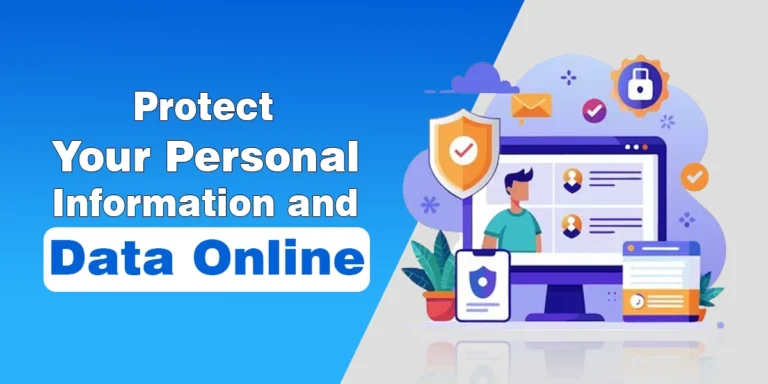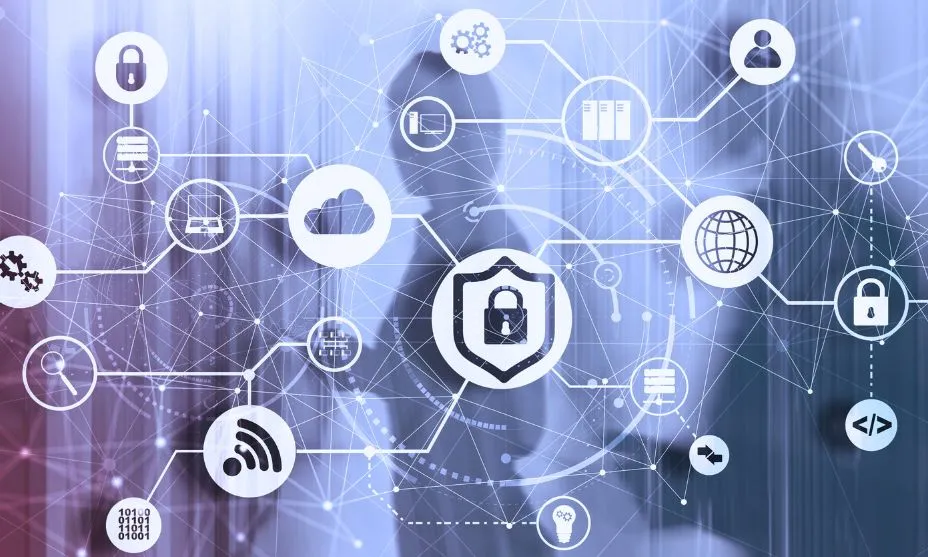
An average person spends around six hours online, whether on social media or working. During this time, they exchange humorous videos, purchase online, or learn something new, unaware that personal information might be at risk.
You may hear about massive data breaches online every day. If you spend a lot of time online, this should bother you. Fortunately, you can avoid this from happening by using different methods.
This is what today’s article will be about. I’ll talk about how to protect your personal information and data and share some tips and tools for that.
Let’s Start!
How to Protect Your Personal Information and Data Online?
The following tips will protect your personal information online.

1. Create Strong Passwords
Start by creating strong passwords for your online accounts. The safety of almost all of your online data depends on them. Imagine a hacker guessing your email password. Now, he will have access to all of your personal and financial information.
You must create a strong password that is difficult for hackers and identity thieves to guess to stop such things. Using your pet’s name and birthdate as a password won’t work. Try to keep it as long as possible. Also, include a combination of upper and lower case letters. Besides this, adding numeric signs can also be helpful.
2. Safeguard Your Social Media Privacy
Most people think that to keep your personal information and data safe, you have to quit using social media. But that’s really not necessary. That is because most social media platforms have strong security protocols these days.
However, they have different privacy settings that you should look into. You have to make changes to it according to your requirements.
For example, you can restrict these applications from using geolocation data for your posts, comments, etc. You can also select what information about you is displayed publicly and which is not.
In this way, you control what general people can and cannot see about you on your account. If it matters, you can also allow only a specific number of people to comment or share your posts through their social media accounts.
3. Get Rid of Useless Apps and Extensions
We usually install applications and extensions on our devices for temporary use. After that, we forget about them, and they stay on our devices. However, these devices can change their terms of privacy at any time. Since you may not know about it, your personal data and information can be at risk.
That’s why you should check your devices properly. After that, remove all the unnecessary apps and extensions. If you think you may need them in the future, you can easily install them again later. For now, keep the safety of your data a priority.
4. Avoid Using Public WiFi
Nearly every location in large cities has public WiFi. Despite being highly useful, it can damage your data if you’re not careful. The reason is very simple. These types of networks aren’t protected well.
Hackers can easily access them. These hackers then can access your personal data and information without facing any type of resistance.
Besides this, these hackers may create a fake WiFi connection to attract people to connect with it. That’s why you should avoid using such connections to keep your data safe. Only do that if you need to connect to the Internet for emergency situations.
5. Don’t open suspicious links and attachments:
One of the very common ways hackers use to access your device is by using links and attachments. These links contain malware that can damage your device. They can do it by directly corrupting the data. This means that a person could lose their data and information if they click on it.
That’s why you should not open links and attachments that are shared with you from untrusted sources. Usually, hackers send these links via emails or messages. Some untrusted websites may also persuade you to click on them. So, keep an eye on such sources and report them right away when faced with them.
So, that’s how to protect your personal information and data online.
Tools for Online Data Security
Here are the details of these tools:
A Password Manager
As I have mentioned, how creating a long and complex password can be useful. However, remembering such passwords can be a real challenge. To tackle that, you can use different password manager tools. They keep all of your account passwords in one place. You can access them any time you want if you forget them.
Best Suggestions
- NordPass
- 1Password
- Roboform
- Dashlane
Antivirus
Antivirus software can keep your devices clean and safe from any major malware or virus threat. These tools are designed to detect and eliminate any harmful files from your mobile phone or PC. A free antivirus may not be as effective as it is marketed. So, make sure to pick a premium one with actual virus-cleaning capabilities.
Best Suggestions
- Bitdefender
- McAfree
- Malwarebytes
- Sophos Home
Browsers
Using a safe and secure browser can make all the difference in the world when it comes to protecting your personal information and data. These browsers use different features to keep Internet surfing safe. For example, they prefer HTTPS connections to ensure data safety.
Best Suggestions
- Brave Privacy Browser
- Avast Secure Browser
- Firefox
- Google Chrome
VPNs
A VPN tool is basically used to keep your connection with the Internet safe. It changes different information about your device and network such as IP address in order to do that. This makes it hard for hackers to intercept and steal your personal information and data.
Best Suggestions
- NordVPN
- ExpressVPN
- CyberGhost VPN
Read also: Cyber Background Checks.
Final Lines
To sum it up, knowing how to protect your personal information and data can be useful if you spend a lot of time online. Hackers are always looking to attach people’s information with weak security.
So, you have to take the necessary precautions. I have discussed some tips that can be useful in this case. Besides this, I have discussed some tools you can use to keep your data safe and secure online.
FAQs
What is the best way to protect personal information online?
Creating a strong password and avoiding suspicious networks and sites are the best ways to protect personal information.
Can a VPN help me use a site securely?
Yes, it can help you do that. However, to ensure safety, you should avoid getting on to suspicious sites.
Can my personal data be corrupted through emails?
Yes. Hackers often use emails to attack individuals’ personal data.